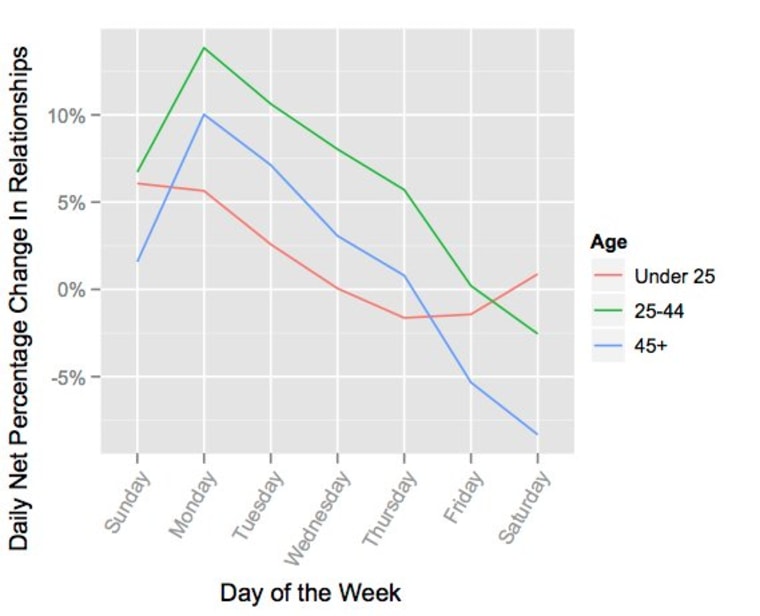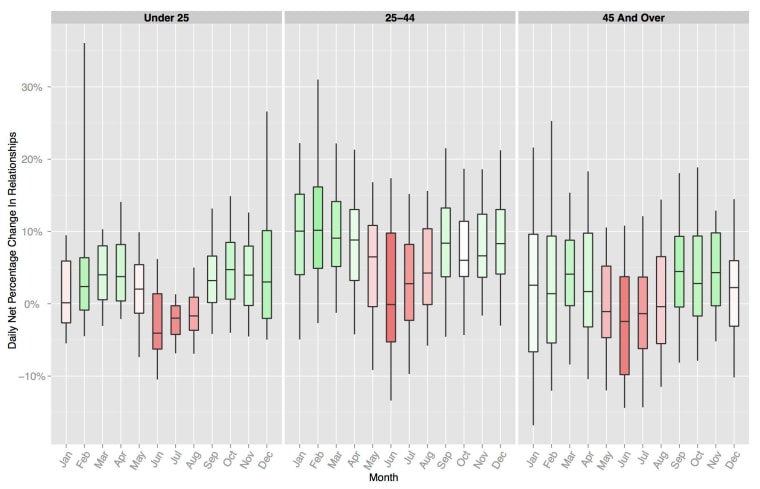Given how much information Facebook has about its users, it's no surprise that members of the social network's data team can infer all sorts of details about human behavior. They even know when people are generally most likely to begin — or end — a relationship.
In a recent blog post, Jackson Gorham and Andrew T. Fiore — two of Facebook's data scientists — shared the data they've compiled about the "seasonality of relationship formation." They analyzed Facebook users' relationship statuses in 2010 and 2011 in order to tabulate changes from "non-coupled" statuses (such as "single" or "divorced") to "coupled" statuses (such as "in a relationship" or "engaged") and vice versa. They compared the two figures and calculated net percentage changes.
So what did they learn about our romantic (and not-so-romantic) tendencies?
For starters, they noticed that love tends to win around Valentine's Day and Christmas. On Feb. 14, Feb. 15, Dec. 24, and Dec. 25 there tend to be significantly more new relationships than break-ups. They also observed a high increase in new relationships on April 1, but — considering that there's also a significant number of break-ups on April 2 — it is fairly reasonable to assume that many of those relationship status changes were just "in good fun" or part of some sort of April Fool's Day joke.
As far as break-ups go, the team noticed that the summer months are particularly bad news for relationship across all age groups.

Facebook's data scientists didn't stop with those broad time frames though. They also made it a point to figure out how the days of the week factor into relationship status changes. They discovered that there was a "net gain in relationships after the weekend — Sunday, Monday, and Tuesday were the biggest days for new romance."
They also noted that break-ups had a tendency to occur on the days leading up to the weekend. They speculated that one explanation for this phenomenon could be that "people looking for a change tend to end their old relationships in time to spend the weekend with friends or get back in the game with someone new." Alternatively, some folks might just be putting the drama of a break-up off until the work week's nearly over.
Want more tech news, silly puns, or amusing links? You'll get plenty of all three if you keep up with Rosa Golijan, the writer of this post, by following her on Twitter, subscribing to her Facebook posts, or circling her on Google+.
